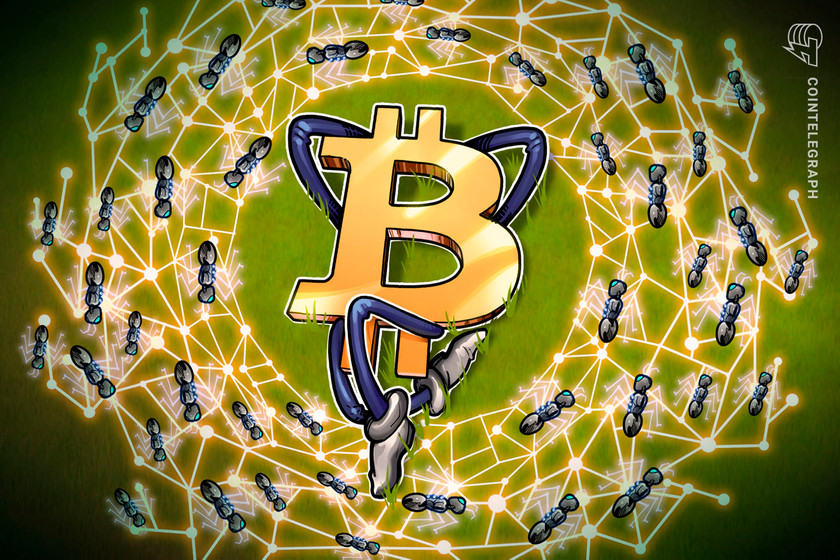
Bitcoin’s node count has achieved another all-time high milestone with almost half of the nodes running on Tor.
The number of reachable Bitcoin network nodes has crossed the 13,000 mark for the first time. As previously reported by Cointelegraph, the previous all-time high was 11,613 achieved back in January.
According to data from Bitcoin network statistics dashboard Bitnodes.io, this milestone was reached back on July 5 when the number of reachable nodes clocked 13,374. As of the time of writing, Bitnodes’ data puts the current network node count at about 12,835,
Coin.Dance, another tracking website also has Bitcoin’s (BTC) node count at a new all-time high of 12,825. Nodes running the Bitcoin Core software make up 98.77% of the number with the remaining scattered across less popular implementations like Bitcore and Bitcoin Knots.

Bitcoin Core 0.21.1 was released back in May with a Taproot activation code and at almost 5,000 nodes (according to Coin.Dance), it is currently the most utilized version of the software among entities running reachable nodes. Figures from Bitnodes put the number at 5,125, or 40% of the total network node count.
Bitnodes’ data also shows at almost half of the network node count is running on Tor. Back in January, only about a quarter of all reachable nodes were running on the hidden network Tor. Running a client like Bitcoin Core using Tor provides an additional privacy layer since the IP addresses of connecting nodes are obfuscated.
Related: Tor-enabled Bitcoin nodes are back after bug on network
According to Bitnodes’ data, the network node count has increased by 2,739 nodes in the last year reinforcing Bitcoin's decentralization ethos.
The growth in the network node count is also akin to the expansion currently taking place in the Lightning Network ecosystem where capacity has gone up over 70% in less than six months.
Earlier in July, public Lightning Network capacity crossed 1,800 BTC after adding 100 BTC in less than a week. Data from Lightning Network statistics tracker Bitcoin Visuals puts the number of LN nodes at above 12,800 which is also an all-time high value.


